If you're wondering, "Why is my phone overheating?" you're not alone. This is a common issue many smartphone users face. Various factors can contribute to your phone getting too hot. And, as you probably know, too much heat is not good for your phone – it can affect its performance, cause further damage, and reduce its lifespan. But there's no need to panic. We'll show you the most common reasons phones overheat and what you can do to keep your device cool.
Why is your phone overheating?
Phones generate a small amount of heat during regular usage or charging, so if your phone feels a bit warm, there's nothing to worry about. However, if your device gets too hot to the touch, displays a temperature warning message, causes your apps to crash, or works improperly, you should look into it and try to find out what is causing this. Identifying the cause is the first step in addressing the issue. Many reasons can be behind phone overheating, but intensive use, extreme heat, software glitches, or hardware issues are among the most common.
Intensive use: Running too many apps at the same time, playing graphics-intensive games, or streaming video content for a long time can cause your phone's processor to work harder, creating more heat.
Extreme heat: Exposure to direct sunlight, high ambient temperatures, or other heat sources can increase your phone's temperature.
Software glitches: Software bugs or glitches can also cause overheating. Outdated software, incompatible apps, or corrupted system files can disrupt the normal functioning of your phone, causing it to heat up.
Hardware issues: Malfunctioning hardware components, such as a faulty battery or a broken charging port, can lead to overheating.
How to stop your phone from overheating
Now that you're familiar with the potential causes, let's dive into some practical solutions to keep your phone cool and prevent further damage.
Give your phone a break:
If you've been pushing your phone to its limits with intense gaming or streaming sessions, give it some time to cool down. Taking breaks between resource-intensive tasks can prevent your device from reaching critical temperatures.
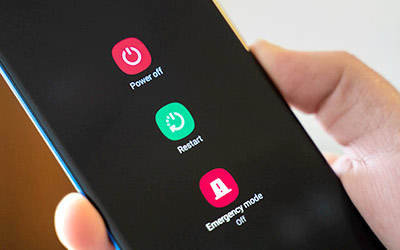 Turn off your phone:
Turn off your phone:
If your phone gets too hot or a temperature warning message appears on your screen, turn off your phone and leave it on a flat surface to cool down. Never put your phone in a fridge, as extreme temperature changes can harm the internal components.
Close unnecessary apps:
Close all the apps on your phone when you're done using them to free up processing power and reduce heat generation. This can be particularly useful after using resource-intensive apps or games.
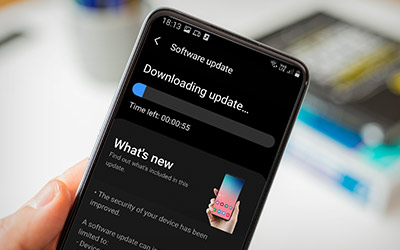 Check for software updates:
Check for software updates:
Ensure that your phone's operating system and apps are up to date. Manufacturers often release updates to fix bugs, improve performance, and enhance overall stability. Keeping your software updated can address potential issues contributing to overheating.
Optimize settings:
Adjust your phone's settings to optimize performance and minimize the likelihood of overheating. For example, lower screen brightness, limit background processes and consider using battery-saving modes to help regulate your phone's temperature.
Turn off unused features:
Disable features or functions you're not actively using, such as Bluetooth, GPS, or Wi-Fi. These features can contribute to heat buildup, and turning them off when you don't need them can help you keep your device cool.
Avoid direct sunlight:
Be mindful of your phone's exposure to sunlight or heat sources. Don't leave your phone in your car on a hot day or on a towel at the beach. If you're outdoors in hot weather and your phone gets too hot, find a shaded place or put it in your bag, and wait for your device to reach a safer temperature before using it again.
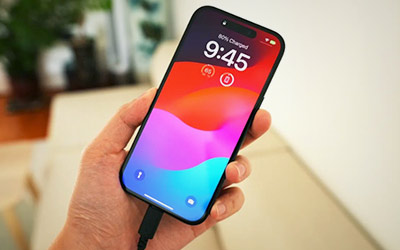 Use the original charger:
Use the original charger:
Stick to using the original charger provided by the manufacturer, as third-party chargers might not be optimized for your device and can cause overheating. Fast charging technologies, while convenient, can also generate more heat during the charging process, so opt for standard charging instead of fast charging to reduce heat buildup.
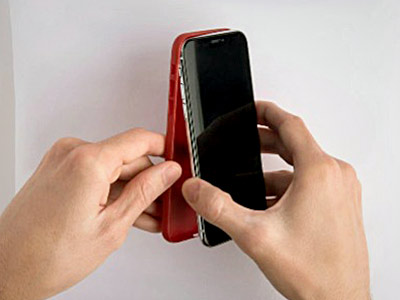 Remove phone case:
Remove phone case:
While phone cases usually don't cause overheating by themselves, if your phone heats up due to another reason, your case can contribute to the issue by trapping the generated heat. Remove your phone case temporarily to allow better ventilation and heat dissipation.
Switch to airplane mode:
If you're in an area with weak signal reception, your phone may struggle to maintain a connection, leading to increased heat. Switching to airplane mode in such situations will help your phone stay cool.
If your phone isn't overheating due to overuse, extreme heat, or software glitches, it's time to consider hardware issues. A damaged battery, charging port, or other internal components, such as integrated circuits, can cause your phone to heat up. In such cases, it's best to contact a professional repair service to diagnose and address the issue.
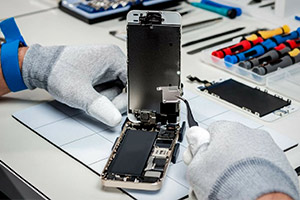 The good news is phone repairs are no problem for The Repair Depot. Our professional technicians know the ins and outs of all major smartphone makes and models and can fix your device in no time, so don't wait until it's too late – get a free repair quote to start your repair process today!
The good news is phone repairs are no problem for The Repair Depot. Our professional technicians know the ins and outs of all major smartphone makes and models and can fix your device in no time, so don't wait until it's too late – get a free repair quote to start your repair process today!
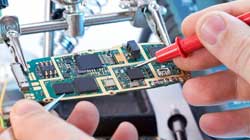
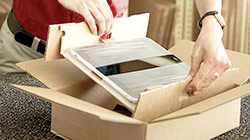
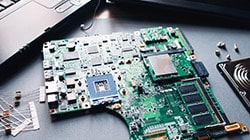





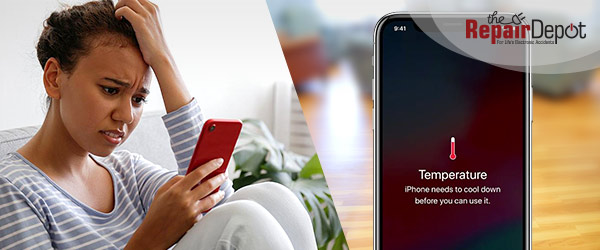
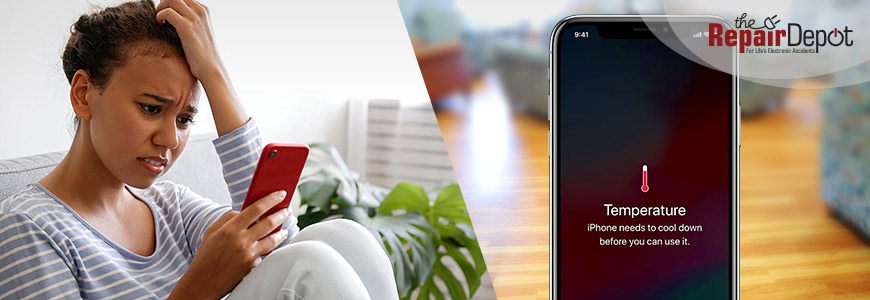

 Turn off your phone:
Turn off your phone: Check for software updates:
Check for software updates: Use the original charger:
Use the original charger: Remove phone case:
Remove phone case: The good news is phone repairs are no problem for The Repair Depot. Our professional technicians know the ins and outs of all major smartphone makes and models and can fix your device in no time, so don't wait until it's too late – get a
The good news is phone repairs are no problem for The Repair Depot. Our professional technicians know the ins and outs of all major smartphone makes and models and can fix your device in no time, so don't wait until it's too late – get a 